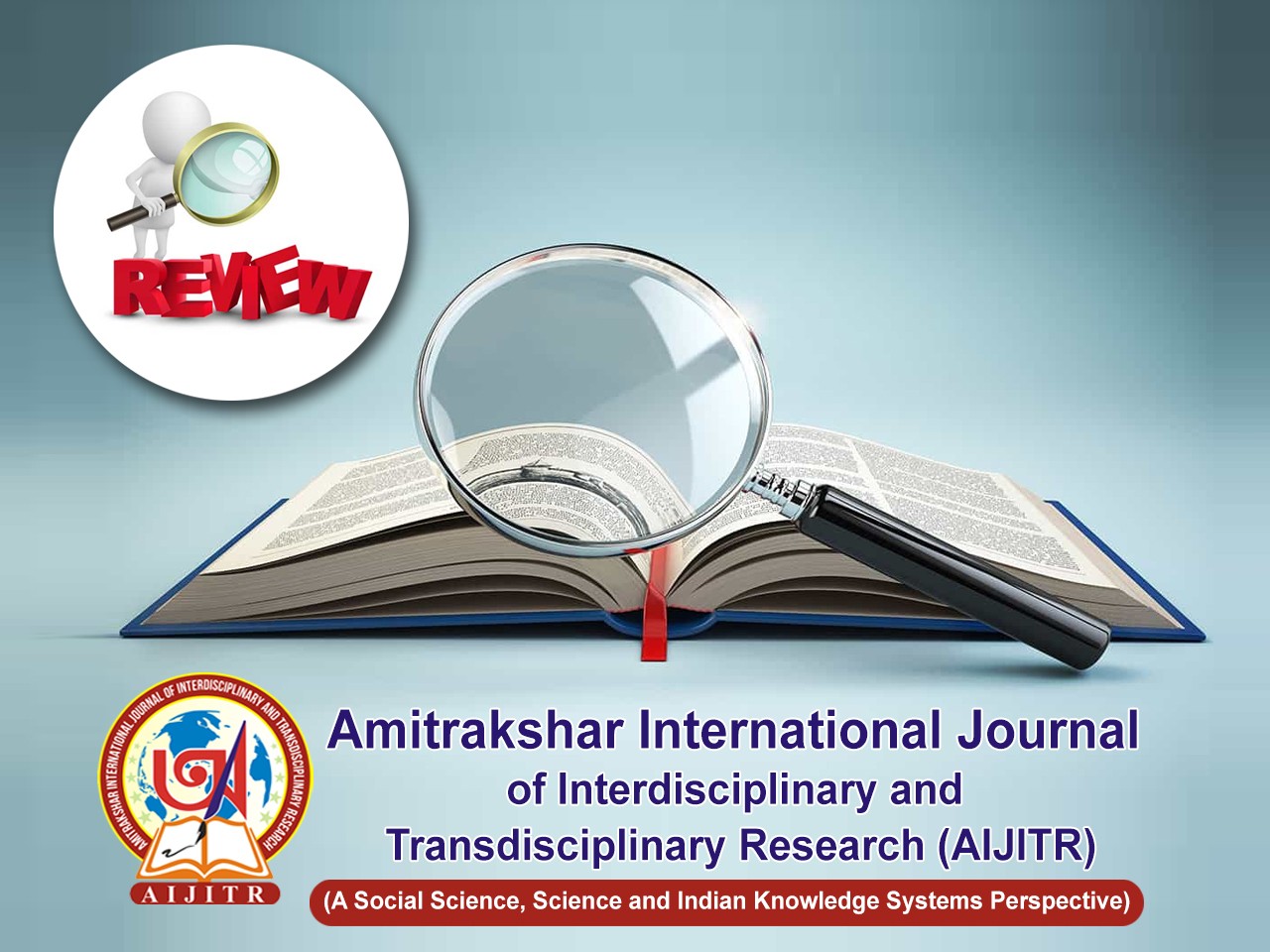

Reviews
Thank you for your commitment to providing high-quality and constructive reviews for manuscripts submitted to Amitrakshar International Journal of Interdisciplinary and Transdisciplinary Research (AIJITR). Your feedback is essential to maintaining the journal's academic integrity and fostering scholarly communication across interdisciplinary and transdisciplinary fields. Below are the detailed guidelines you should follow while reviewing submissions:
As a reviewer, you are expected to treat all manuscripts as confidential documents. You should not discuss the manuscript with anyone else or share any information from the paper. If you require assistance with specific aspects of the review process, you may consult with the Editor-in-Chief, but do not involve external parties. Manuscripts should not be retained or used in any way once the review is completed.
We ask all reviewers to complete their assessments within the timeframe indicated when accepting the review invitation. This generally allows for a review period of 2-3 weeks. If you anticipate delays or find that you cannot meet the deadline, please inform the editorial team as soon as possible so that alternative arrangements can be made.
Please notify the editor if you believe there is a potential conflict of interest regarding the manuscript you are reviewing. A conflict of interest can arise from a personal or professional relationship with the author(s), competing research interests, or any other circumstance that might affect the impartiality of your review. If a conflict exists, you may be asked to decline the review assignment.
Reviews should be constructive and provide clear, specific, and objective feedback. Reviewers are asked to provide feedback on the following key aspects of the manuscript:
a. Originality and Contribution
Does the manuscript offer new insights or approaches to interdisciplinary or transdisciplinary research?
How does the work contribute to existing literature in the respective fields?
Does it present a novel perspective, theory, or empirical data that adds value to the broader academic community?
b. Clarity and Structure
Is the manuscript clearly written and well-structured?
Are the objectives, research questions, and hypotheses clearly stated?
Does the manuscript flow logically from one section to the next?
c. Methodology
Is the methodology appropriate for the research question or hypothesis posed?
Are the methods described in sufficient detail for replication or further study?
Are the tools, techniques, and data collection methods suitable for the interdisciplinary nature of the research?
d. Data and Results
Are the data presented clearly, and do they support the conclusions drawn?
Are statistical or analytical methods used correctly?
If applicable, are the figures, tables, and supplementary materials clear and helpful?
e. Interpretation and Discussion
Are the results interpreted in a balanced and thoughtful manner?
Does the author discuss the limitations of their study?
Are the implications for interdisciplinary or transdisciplinary research clearly articulated?
f. Ethical Considerations
Has the research followed appropriate ethical guidelines?
For empirical studies involving human participants, has proper ethical clearance been obtained?
Are all sources of funding and potential conflicts of interest disclosed?
You will be asked to provide separate comments for the author and the editor. Please ensure that your feedback is professional, respectful, and designed to help the author improve their work.
a. Comments to the Author
These comments should focus on helping the author enhance the quality of the manuscript. Your feedback should be detailed enough to explain any weaknesses and provide suggestions for improvement. Be specific in your recommendations, whether they pertain to the clarity of writing, the rigor of the methodology, or the interpretation of results.
b. Comments to the Editor
Your comments to the editor should summarize your overall evaluation of the manuscript and include your recommendation (accept, minor revisions, major revisions, or reject). You should also mention any concerns regarding the manuscript's scope, originality, or ethical issues. If necessary, provide justification for your decision, especially if you recommend rejection.
At the conclusion of your review, you will be asked to make one of the following recommendations:
Accept: The manuscript meets the journal's standards and is suitable for publication with minimal revisions.
Minor Revisions: The manuscript is generally strong but requires some revisions, such as clarifications, additional analysis, or minor reorganization.
Major Revisions: The manuscript has potential, but significant changes are necessary before it can be reconsidered for publication. This might involve reworking the methodology, clarifying concepts, or providing additional data.
Reject: The manuscript does not meet the journal’s standards and is not suitable for publication.
It is crucial that your feedback is constructive, aimed at improving the manuscript. Avoid derogatory or overly critical language. Authors benefit most from reviews that not only point out deficiencies but also suggest practical ways to address them.
As a peer reviewer, you are expected to adhere to the highest ethical standards. Do not use information obtained during the review process for personal gain or use another person’s work without permission. Ensure that your evaluation is fair, impartial, and free from bias. If you suspect ethical violations, such as plagiarism or data fabrication, notify the editor immediately.
After submitting your review, you may be invited to review subsequent revisions of the manuscript. If you have made detailed suggestions for improvement, we encourage you to review the revised version to ensure that your comments have been addressed.
Your role as a reviewer is integral to maintaining the academic rigor and interdisciplinary dialogue that AIJITR aims to foster. We deeply appreciate your time and effort in ensuring that high-quality research reaches our readership.
For any questions or clarification regarding the review process, please do not hesitate to contact the editorial office.


